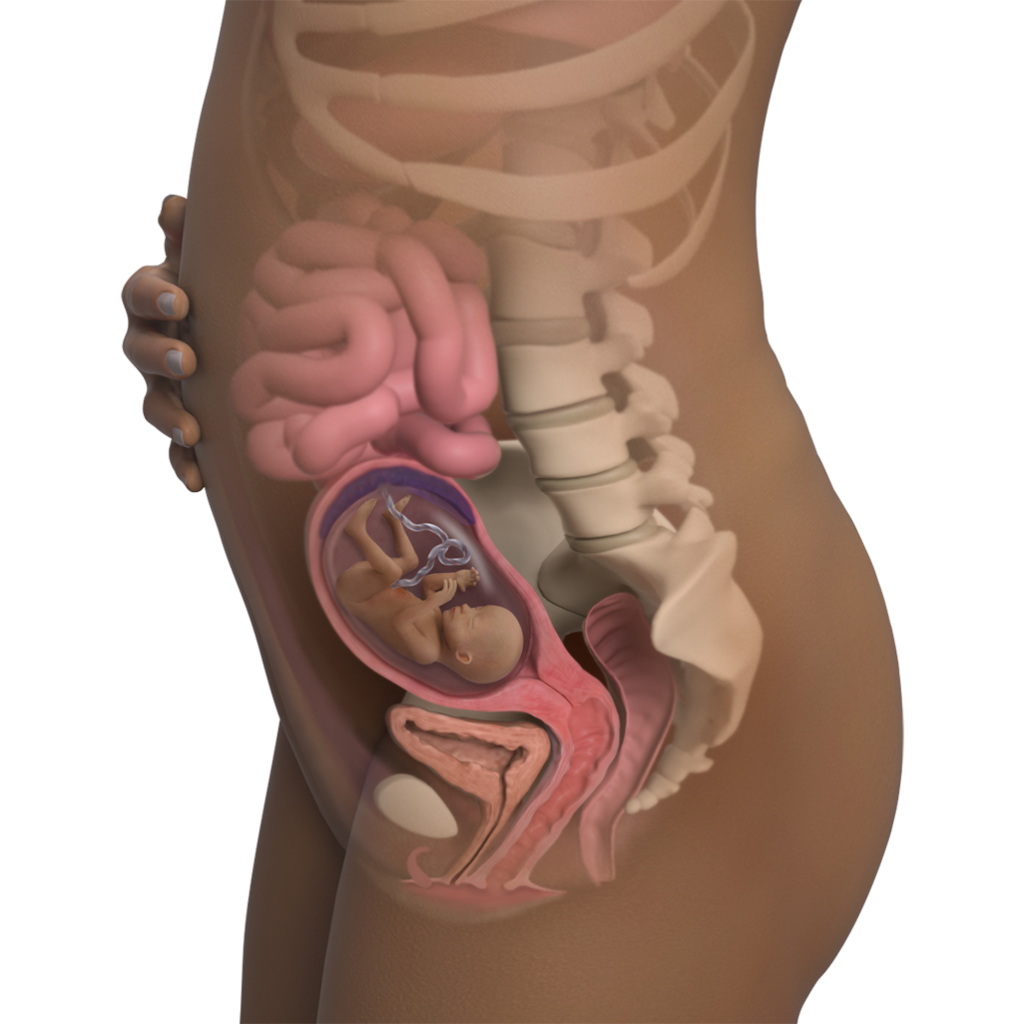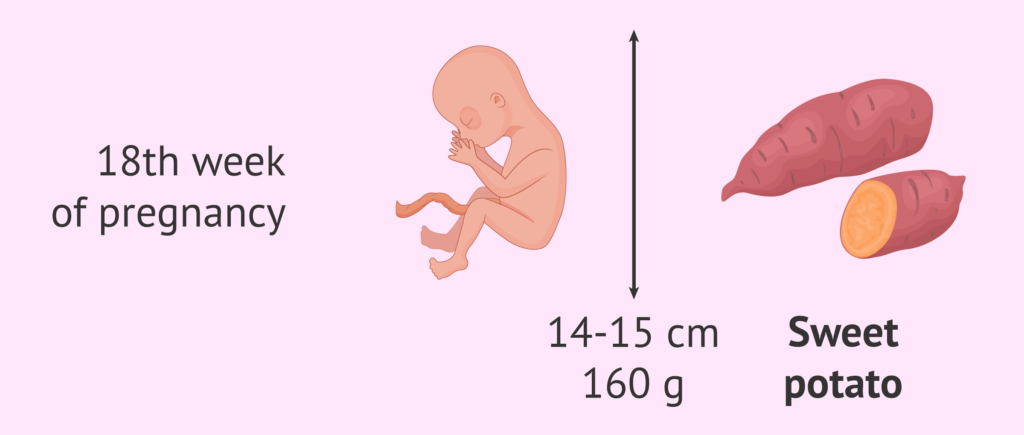During the 18th week of pregnancy, several significant developments occur for both the mother and the baby:
For the Mother:

1. **Baby Bump Growth:** By the 18th week, the mother’s abdomen continues to expand as the uterus accommodates the growing fetus. The baby bump becomes more noticeable, and maternity clothes may be necessary to provide comfort and support.
2. **Increased Appetite:** Many women experience an increase in appetite during the second trimester, including the 18th week. It’s essential to continue consuming a balanced diet rich in nutrients to support both the mother’s and the baby’s health.
3. **Skin Changes:** Hormonal changes may lead to various skin changes, such as darkening of the nipples, areolas, and linea nigra (the dark line that forms down the center of the abdomen). Some women may also experience skin dryness or itchiness.
4. **Braxton Hicks Contractions:** Some women may start to experience Braxton Hicks contractions, which are sporadic, painless uterine contractions. These contractions help prepare the uterus for labor and are often referred to as “practice contractions.”
5. **Emotional Well-being:** While mood swings and emotional fluctuations are still common, many women may begin to feel more emotionally stable and confident as they adjust to the changes of pregnancy.

For the Baby:
1. **Fetal Growth:** By the 18th week, the baby continues to grow rapidly, measuring around 5.6 to 6.2 inches in length and weighing approximately 6.7 to 7.4 ounces. The baby’s body becomes more proportionate as fat deposits start to form under the skin.
2. **Movement:** The baby’s movements become more coordinated and purposeful during the 18th week. While these movements are still mostly felt by the mother as gentle flutters or “quickening,” they may become more frequent and noticeable.
3. **Vernix Caseosa:** A white, cheese-like substance called vernix caseosa begins to cover the baby’s skin. Vernix serves as a protective barrier, preventing the baby’s skin from becoming waterlogged while in the amniotic fluid.

4. **Hearing:** The baby’s ears continue to develop, and it may start to detect sounds from the outside world, such as the mother’s heartbeat and voice. However, the baby’s hearing is still limited at this stage.
5. **Swallowing and Digestive System:** The baby’s digestive system continues to mature, and it may start to swallow small amounts of amniotic fluid. This helps the baby practice swallowing and digesting, essential skills for life outside the womb.
Overall, the 18th week of pregnancy is a time of continued growth and development for both the mother and the baby. It’s essential for the mother to continue receiving regular prenatal care and to maintain a healthy lifestyle to support the baby’s development.

